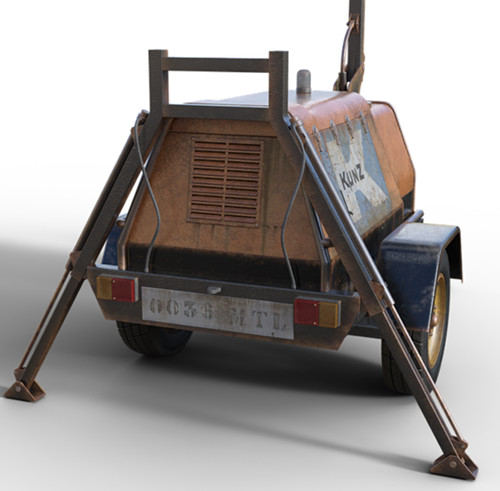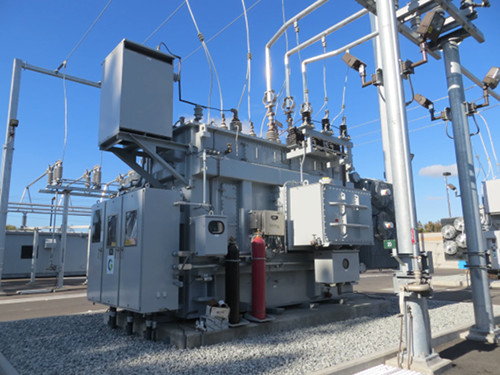There are various reasons that you might be looking for generators. There are different generators that are great options to look at if you are looking for something to power a small home, a mobile home if you are going off the grid, or to power gadgets for road trips or camping. There are also other generators specifically made that supply more power than your typical small appliance or perhaps you might instead need to power multiple buildings or use as a backup energy source in case of an outage.
There are quite a few options out there to consider when looking for a generator and it is important to consider what those options are. In order to understand what is best for you, you need to look at the type of fuel as one factor that goes into your reasoning. If you’re buying a generator to take boating, Karen Lao from Krugerpower.com.au recommends that you buy a generator that uses the same type of fuel as your boat. This is just one of the things you should factor into your decision regarding your power supply.

Another factor you should look into is the phases for the generator itself. There are two major categories, single-phase generator vs. three-phase generator. Different phases on generators provide different uses and these will be a very important aspect to look into when selecting a power source.
One Phase Generator
One phase generators harness the power of single-phase electricity. This is done by creating a closed circuit. This circuit is structurally made from two wires. One wire is live and carries the current from the conductor, while the other wire is neutral and returns to the source closing the circuit. This type of system uses a single-phase cycle that creates peaks and valleys in your energy supply. Because of the way the waves are spaced in these types of circuits, there are times where the energy is not consistently at the maximum power and that will cause dips in the current supplied out to the things that need the electricity or power.
Benefits of One Phase Generators
Single-phase generators tend to have a lower cost than other generators. This makes them the more affordable budget option if you are looking for something cheaper than the higher end, higher output options. The energy output from single-phase generators is not as high as multi-phase generators. So you should be keeping that in mind as a good option if you only need power as a backup for times of electricity outages or fluctuations. If you do not require as much energy, and only need to power small appliances in your home including lights, computers, televisions, and heaters, this is a good option. These types of generators are perfect for bringing on a camping or road trip because it is not as expensive so you won’t have to worry about it. These are best for rural areas or times where you do not need a constant source of power.
Two-Phase Generator
Two-phase generators are built off the two-phase power structure. This created a loop of energy that was offset from single phase energy to provide more power and electricity from double the sources. These circuits use four wires to create the two phases, while in some cases, three wires were adequate to go from the conductors out with a single return wire. Two-phase power was used after single-phase power as a more efficient alternative. Although some of these generators are still used in industrial settings, they are not as common as before as many of them would eventually be replaced by the much more efficient three-phase power. The circuitry of two-phase generators also is manipulated to mirror or resemble that of the single-phase power systems, which has all but made two-phase generators almost obsolete.
Benefits of Two-Phase Generators
The benefit for two-phase generators is that they are more efficient and they can supply more energy than single-phase generators. However, they do not provide a constant energy flow that three-phase power provides and comparatively, they cause more vibrations and can be louder than the more efficient three-phase generators. They are not as widely used as single-phase generators are more suitable for powering smaller areas and for smaller purposes while the three-phase generators are used to power larger areas and those that demand more power.
Three-Phase Generator
Three-phase generator works of three-phase electricity or circuit. This is created with four wires, three wires carry the energy from the supply and one wire returns the current to the supply. This circuit allows a more consistent source of power and at the same time provides energy from multiple sources that allow the generator to function if ever one of the circuits were to break and the phases were to become faulty. This is because the other two circuits would still be intact and allow for power, although at a slower and more inconsistent rate.

Benefits of Three-Phase Generators
Three-phase generators provide a more consistent source of power as the cycles of output are spaced more evenly and never allow the energy supply to drop below zero. These generators are also capable of a higher amount of overall power, in some cases almost doubling the voltage output of their single-phase counterparts. These types of generators are meant for larger uses, meaning sectors with commercial and industrial power needs. Another benefit is that it is more reliable as previously mentioned because if one phase becomes problematic and goes down, you still have the other two phases.
There are a number of important features you need to be sure to look out for when buying your generator, but the most important thing is determining the right sized generator to ensure you enough power to run your appliances. The market is flooded with various kinds of generators available in a wide price range. So, you have lots of options in terms of brands, type, size, features, and price. Proper knowledge and research will allow you to buy a suitable generator that you need.
